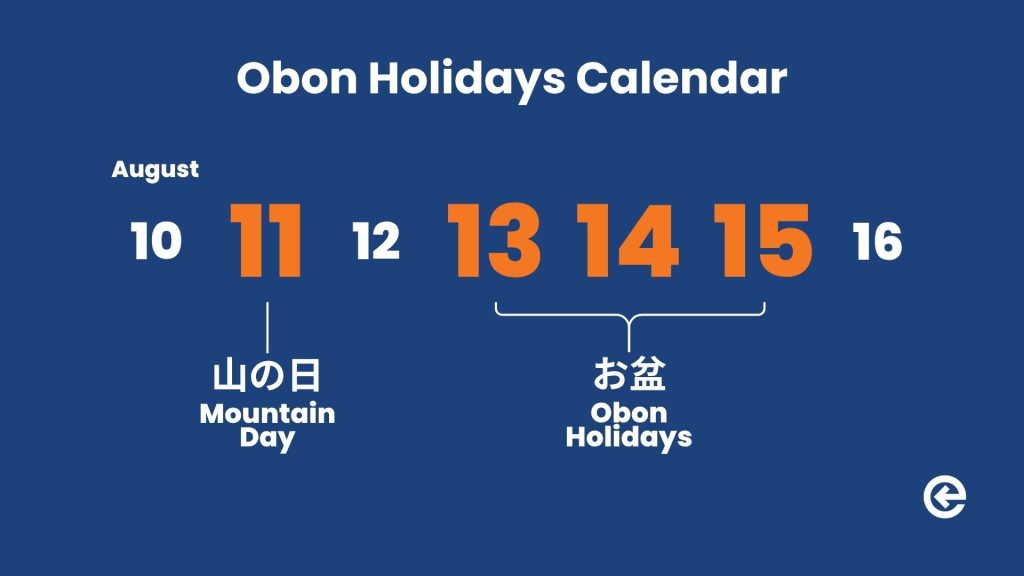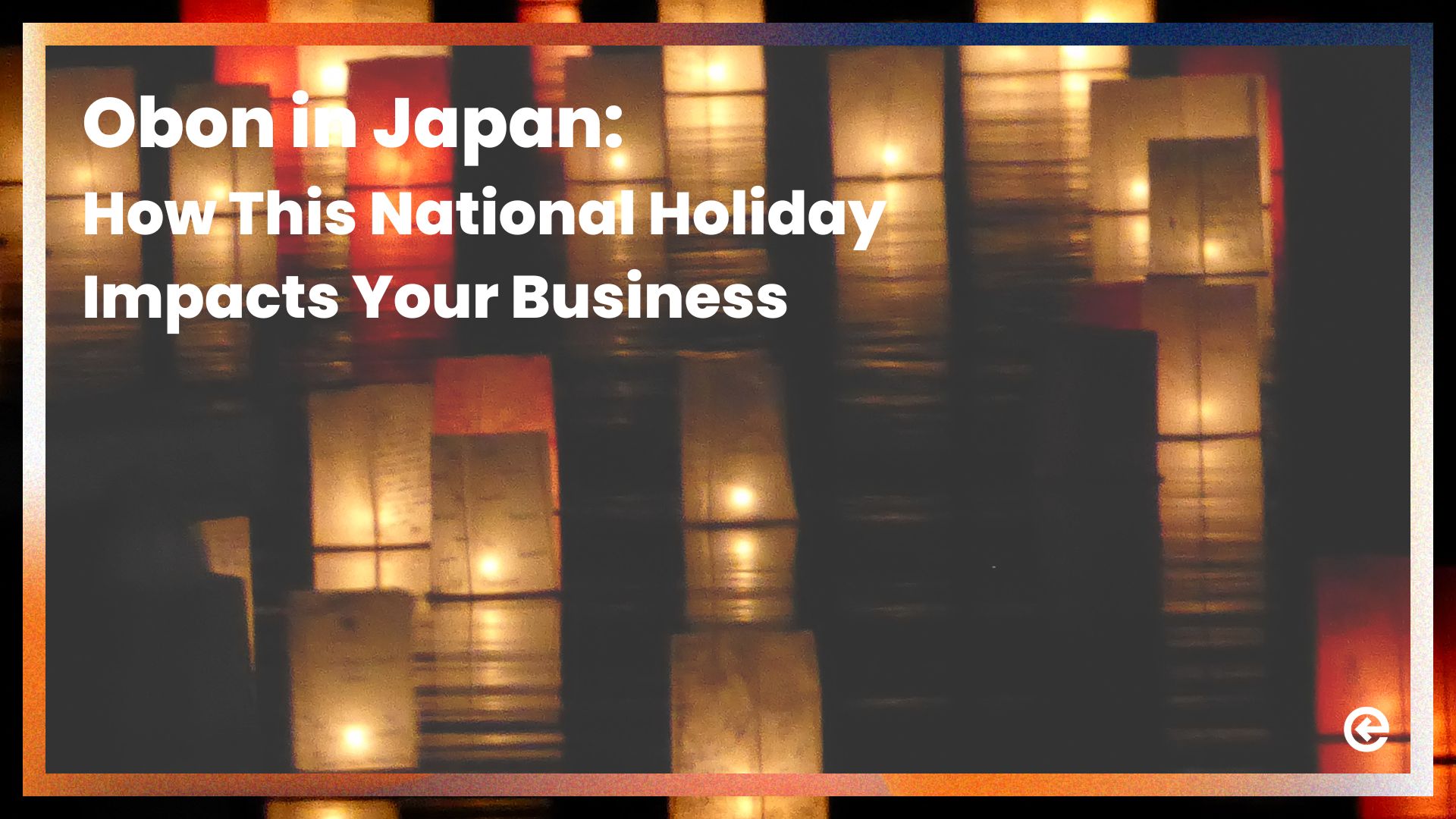Obon in Japan: How This National Holiday Impacts Your Business
August is one of the most important times of the year in Japan. Not just because of the summer heat, but because of Obon.
Obon is a time when families across Japan return to their hometowns to honor their ancestors. While it is not an official public holiday, it is widely observed. Offices close, warehouses pause, and logistics networks slow down.
If you are doing business in Japan, or planning to, you need to be prepared. Here is what international brands like you should know about how Obon affects operations, shipping, and campaign planning.
What Is Obon?
Obon (お盆) is one of Japan’s most culturally significant holidays. It is rooted in Buddhist tradition and focuses on honoring the spirits of ancestors. Families gather, visit graves, clean memorial sites, light lanterns, and prepare symbolic offerings at home.

Most regions observe Obon in mid-August, typically from August 13 to 15. However, closures often begin earlier and extend later, turning this period into a full week of slowdowns across logistics, eCommerce, and corporate operations. Because of its cultural importance, Obon is widely respected across industries and often treated as an unofficial week-long business break.
How Obon Affects Business Operations
During Obon, many Japanese businesses temporarily close or operate on reduced schedules. This affects both B2B and B2C workflows.
What to expect:
- Warehouse and 3PL closures from August 11 to 15
- Delays in customs clearance, import processing, and final delivery
- Response delays from business contacts, distributors, and regulatory agencies
- Postponed meetings, decision-making processes, or purchase cycles
For B2B brands managing procurement, product registration, or regulatory processes, Obon can delay approvals, partner communication, and shipment scheduling by a week or more. Since the holiday also overlaps with one of Japan’s busiest domestic travel seasons, transport networks are often congested, which adds pressure to inbound and outbound logistics. If your operations rely on just-in-time inventory or tight delivery timelines, these delays can quickly lead to bottlenecks.
How to Prepare for Obon
Whether you sell direct to consumers or work with Japanese partners, Obon impacts your timeline. Preparation ensures you stay on track even when your local partners are offline.
Here is what we recommend:
- Confirm production and import schedules by early August
- Submit registration paperwork and documentation in advance
- Communicate with buyers and partners about response time expectations
- Delay contract renewals, campaign launches, or negotiations until after August 20
- Brief your team on adjusted timelines for shipments, communication, and approvals
A brief delay warning or pre-set customer service message can go a long way in maintaining brand reputation and business relations.
Opportunities for Brands During Obon
While operations may pause, Obon is an ideal time to refocus your team and get ahead of the next quarter. Here’s how to make the most of the downtime:
- Evaluate your mid-year performance and adjust your Q3–Q4 strategy
- Refresh Japanese-facing materials such as product listings, packaging, content, or marketing assets
- Plan seasonal promotions or Obon-themed messaging to run before or after the holiday
- Prepare re-engagement campaigns to launch post-Obon, when consumers and business partners return
- Review your compliance documents, SKU accuracy, and logistics workflows
- Align with your team on priorities, messaging, or distributor strategy for the months ahead
For brands already in-market, this is a great time to align messaging with Japanese seasonal values like family, home, and remembrance. For brands preparing for entry, use the quiet period for prep work.
How COVUE Supports You During Obon
COVUE helps international companies simplify, plan, and adapt to Japan’s seasonal business rhythms. Whether you are launching, importing, or scaling, we make sure your schedule stays on track.
Here is how we support you during Obon:
- Handle import documentation and approvals before warehouse closures
- Align fulfillment and inventory planning to avoid last-minute delays
- Provide customer support solutions for your eCommerce store when teams are offline
- Coordinate sales, campaigns, and business relations with market-specific timing
We also guide you through how to maintain eCommerce presence and customer engagement when many local teams are on leave.
Obon is a meaningful time for people in Japan. For businesses, it is a moment that demands planning and foresight.
With the right approach, you can stay ahead of delays, protect customer trust, and even uncover opportunities for brand building and internal growth.
Whether you’re launching a seasonal campaign, coordinating logistics, or managing regulatory approvals, COVUE helps you stay prepared, compliant, and confident in every season.


